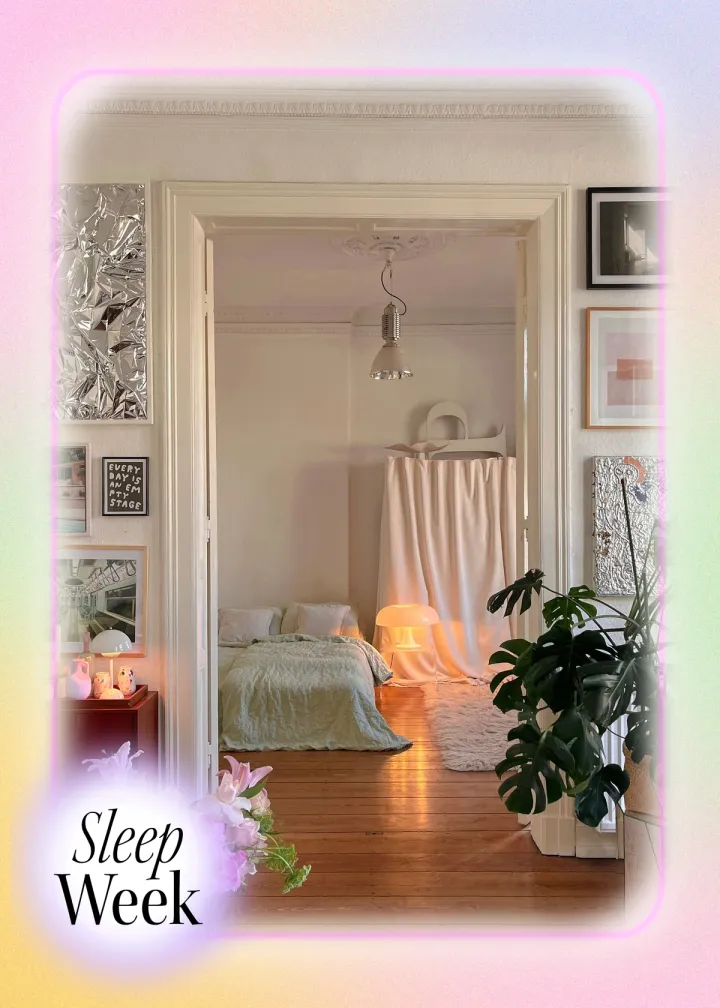
5 Things to Remove From Your Bedroom for a Better Night's Sleep
Removing these things from your bedroom could result in your best sleep yet.
Your bedroom should be your little sanctuary, a calm place you can retreat to at the end of a busy day and your safe space for getting a good night's rest. When it comes to getting enough sleep and avoiding the longterm effects of partial sleep deprivation, it's important to establish good sleep hygiene.
There are a few things in your bedroom that could be impacting you getting a restful sleep and subsequently making you feel average throughout the day. Below, we look at five things you should consider removing from your bedroom in order to get a better night's rest.
5 Things to Remove From Your Bedroom for a Better Night's Sleep
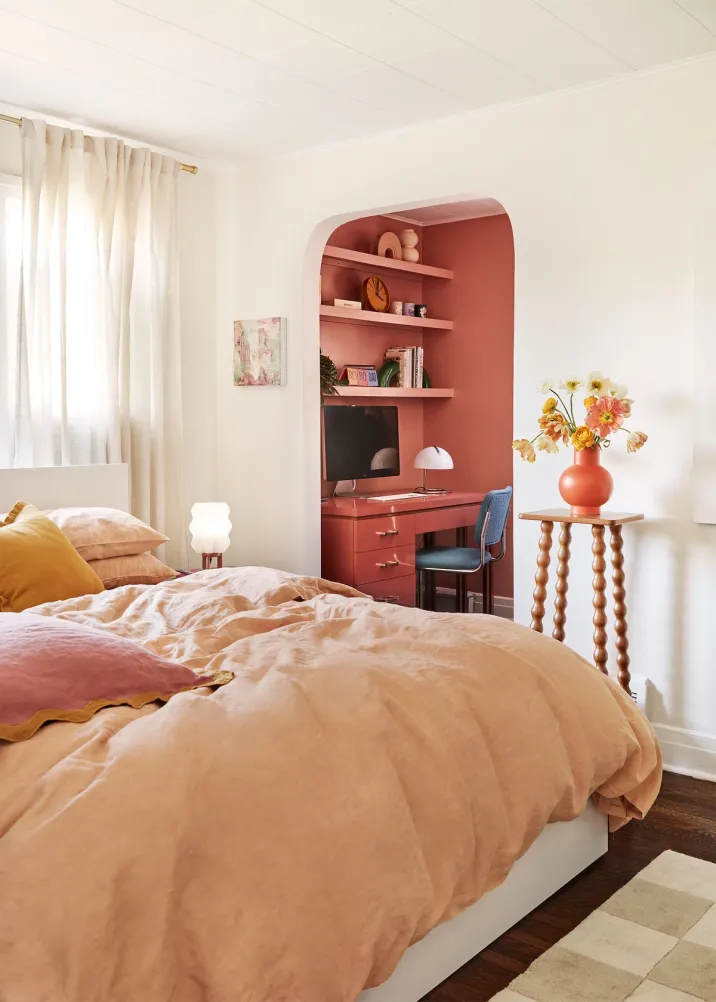
1. Your workspace
Having a desk in your bedroom blurs the line between work and rest and can disrupt the mental association between your bedroom and sleep.
By having a designated work space in your bedroom it can become more difficult to fall asleep as your brain will think you're in a place of work. The same association can be triggered if you use your laptop in bed to do work.
If you're tight on space, seek inspiration from graphic designer Jessica Marak, who does this well in her Los Angeles home by having her office adjacent to her bedroom separted by an entrance way.
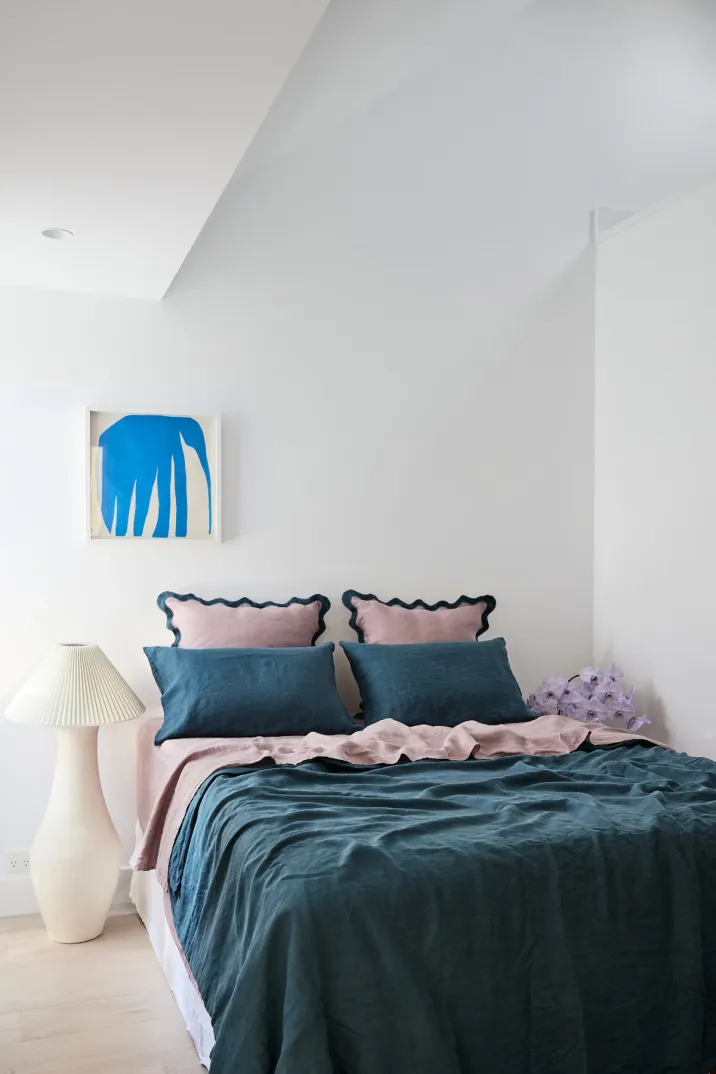
2. Mobile phone
Leaving your mobile phones out of your sleep sanctuary can be helpful in improving your sleep. For many of us our mobile phones are the last things we check before we get some shut eye, and something we often check if we wake up in the middle of the night.
Unfortunately, light stimulation may fragment sleep as small amounts of artificial light from our screens may cause a delay in the circadian rhythm. If you rely on your mobile to wake you up each morning, opt for a bedside table alarm instead.

3. General clutter
The idea of a clean space promoting a clear mind couldn't be more true of our bedrooms. This space should be calming to be in, and having lots of clutter around isn't conducive with this.
A study conducted by the Princeton Neuroscience Institute found that having multiple visual stimuli present within range of one’s view can result in those stimuli competing for neural representation. Simply put, the more clutter you can see, the greater risk you're at of being distracted. From a hygiene perspective, the cleaner the space, the less likely you are to encounter bugs and bacteria.
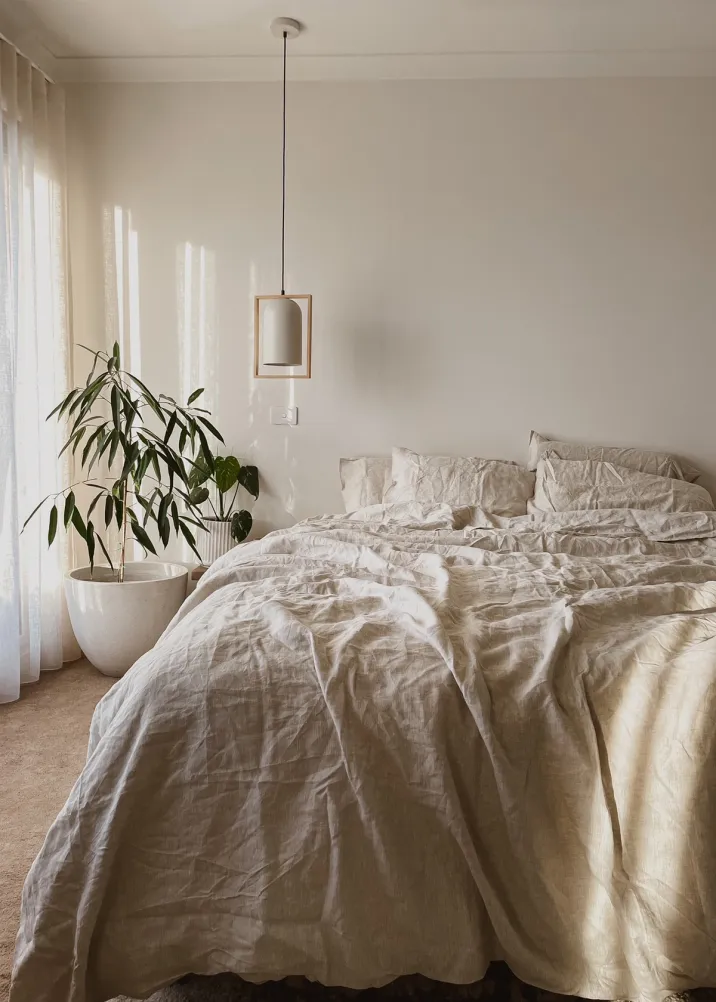
4. Pets
There are plenty of reasons why pets are good for our mental health, but if your pet is constantly moving around, or you keep needing to get up in the middle of the night to let them go to the bathroom, you're not going to be getting the quality sleep you need or deserve.
It might be difficult to deny your pet the luxury of your warm, cosy bed, but if having them sleep in your room is at the detriment of a full night’s sleep and in turn a clear and alert mind, healthy body, and balanced emotions, it's probably worth making them sleep in another room.
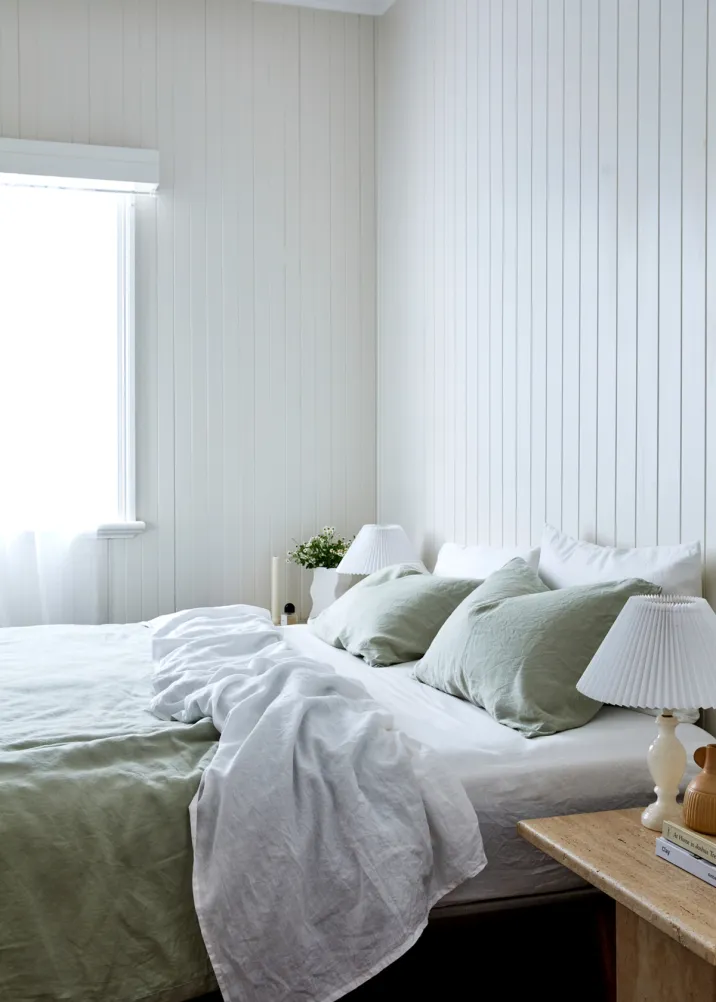
5. Old pillows
According to the National Sleep Foundation, pillows should be replaced on average every one to two years. Your pillow comes into direct contact with your hair and skin and is thus more likely to absorb and retain sweat, oils, and dead skin cells from your face and hair.
Over time, this can lead to discolouration, odour, and even mould, none of which has any place in your bedroom. If you're waking up with neck or shoulder pain it's also definitely time to replace your pillows.
Enjoyed This?
Discover more sleep related articles.



